- Home
- Michael Connelly
The Black Echo Page 18
The Black Echo Read online
Page 18
He nodded and dropped his hands.
“So what now?” she said.
“Well, the kid’s eaten. Why don’t we get him squared away and then you and I get something to eat? There’s a place—”
“I can’t,” she said.
“—on Overland I know.”
“I already have plans for tonight. I’m sorry. Maybe we can make it another night.”
“Sure.” He walked over to the interview room door and looked through the glass. Anything to avoid showing his face to her. He felt foolish for trying to move so quickly with her. He said, “If you have to get going, go ahead. I’ll get him in a shelter or something for the night. We don’t both have to waste our time with it.”
“You sure?”
“Yeah. I’ll take care of him. I’ll get a patrol unit to take us. We’ll get his bike on the way. I’ll have ’em drop me by my car.”
“That’s nice. I mean about you getting his bike and taking care of him.”
“Well, we made a deal with him, remember?”
“I remember. But you care about him. I watched how you handled him. You see some of yourself there?”
He turned away from the glass to look at her.
“No, not especially,” he said. “He’s just another wit that has to be interviewed. You think he’s a little bastard now, wait another year, wait till he’s nineteen or twenty, if he makes it. He’ll be a monster then. Preying on people. This isn’t the last time he’ll be sitting in that room. He’ll be in and out of there his whole life till he kills somebody or they kill him. It’s Darwin’s rules; survival of the fittest, and he’s fit to survive. So no, I don’t care about him. I’m putting him in a shelter because I want to know where he is in case we need him again. That’s all.”
“Nice speech, but I don’t think so. I know a little bit about you, Bosch. You care, all right. The way you got him dinner and asked him—”
“Look, I don’t care how many times you read my file. You think that means you know about me? I told you, that’s bullshit.”
He had come up close to her, until his face was only a foot from hers. But she looked away from him, down at her notebook, as if what she had written there might have something to do with what he was saying.
“Look,” he said, “we can work this together, maybe even find out who killed Meadows if we get a few more breaks like the one with the kid today. But we won’t really be partners and we won’t really know each other. So maybe we shouldn’t act like we do. Don’t tell me about your little brother with a crew cut and how he looks the way I did, because you don’t know how I was. A bunch of papers and pictures in a file don’t say anything about me.”
She closed the notebook and put it in her purse. Then she finally looked up at him. There was a knocking from inside the interview room. Sharkey was looking at himself in the mirrored window of the door. But they both ignored him and Wish just drilled Bosch with her eyes.
“You always get this way when a woman turns you down for dinner?” she asked calmly.
“That’s got nothing to do with it and you know it.”
“Sure. I know it.” She started to walk away, then said, “Let’s say nine A.M., we meet at the bureau again?”
He didn’t answer and then she did walk away, toward the squad room door. Sharkey pounded on his door again, and Bosch looked over and saw the boy picking the acne on his face in the door’s mirror. Wish turned once more before she was out of the room.
“I wasn’t talking about my little brother,” she said. “He was my big brother, actually. And I was talking about a long time ago. About the way he looked when I was a little girl and he was going away for a while, to Vietnam.”
Bosch didn’t look at her. He couldn’t. He realized what was coming.
“I remember how he looked then,” she said, “because it was the last time I saw him. It sticks with you. He was one of the ones that didn’t come back.”
She walked out.
Harry ate the last slice of pizza. It was cold and he hated anchovies and he felt he deserved it that way. Same for the Coke, which was warm. Afterward, he sat at the homicide table and made calls until he found an empty bed, rather, an empty space, in one of the no-questions-asked shelters near the Boulevard. At Home Street Home they didn’t try to send runaways back to where they came from. They knew in most cases home was a worse nightmare than the streets. They just gave the children a safe place to sleep and then tried to send them off to any place but Hollywood.
He checked out an unmarked car and drove Sharkey to his motorbike. It would not fit in the trunk, so Bosch made a deal with the boy. Sharkey would ride the bike to the shelter and Bosch would follow. When the boy got there and got checked in, Bosch would give him back his money and wallet and cigarettes. But not the Polaroids and the joint. Those went into the trash. Sharkey didn’t like it but he did it. Bosch told him to hang around the shelter a couple of days, though he knew the boy would probably split first thing in the morning.
“I found you once. If I need to, I can do it again,” he said as the boy locked his bike up outside the home.
“I know, I know,” Sharkey said.
It was an idle threat. Bosch knew that he had found Sharkey when the boy didn’t know he was being looked for. It would be a different story if he wanted to hide. Bosch gave the boy one of his cheap business cards and told him to give a call if he thought of anything that would help.
“That would help you or me?” Sharkey asked.
Bosch didn’t answer. He got back in the car and drove back to the station on Wilcox, watching the mirror for signs of a tail. He didn’t see any. After checking the car in he went to his desk and picked up the FBI files. He went to the watch office, where the night lieutenant called one of his patrol units in to give Bosch a lift to the Federal Building. The patrol officer was a young cop with a quarter-inch hairdo. Asian. Bosch had heard around the station that he was called Gung Ho. They rode in silence the whole twenty minutes to the Federal Building.
Harry got home by nine. The red light on his phone machine was blinking but there was no message, just the sound of someone hanging up. He turned on the radio for the Dodgers game, but then he turned it off, tired of hearing people talk. He put CDs by Sonny Rollins, Frank Morgan, and Branford Marsalis into the stereo and listened to the saxophone instead. He spread the files out on the table in the dining room and turned the cap on a bottle of beer. Alcohol and jazz, he thought as he swallowed. Sleeping with your clothes on. You’re a cliché cop, Bosch. An open book. And no different from the dozen other fools who must hit on her every day. Just stick to the business in front of you. And don’t hope for anything else. He opened the file on Meadows, carefully reading every page, whereas before, in the car with Wish, he had only skimmed.
Meadows was an enigma to Bosch. A pillhead, a heroin user, but a soldier who had re-upped to stay in Vietnam. Even after they took him out of the tunnels, he stayed. In 1970, after two years in the tunnels, he was assigned to a military police unit attached to the American embassy in Saigon. Never saw enemy action again but stayed right up to the end. After the treaty and pullout of 1973, he got a discharge and stayed on again, this time as one of the civilian advisers attached to the embassy. Everybody was going home, but not Meadows. He didn’t leave until April 30, 1975, the day of the fall of Saigon. He was on a helicopter and then a plane ferrying refugees out of the country, on their way to the United States. That was his last government assignment: security on the massive refugee transport to the Philippines and then to the States.
According to the records, Meadows stayed in Southern California after coming back. But his skills were limited to military police, tunnel killer, and drug dealer. There was an LAPD application in the file that was marked rejected. He failed the drug test. Next in the file was a National Criminal Intelligence Computer sheet that showed Meadows’s record. His first arrest, for possession of heroin, was in 1978. Probation. The next year, he was popped again, this time for p
ossession with intent to sell. He pleaded it out to simple possession and got eighteen months at Wayside Honor Rancho. He did ten of them. The next two years were marked by frequent arrests on marks beefs — fresh needle tracks being a misdemeanor good for sixty days in county lockup. It looked like Meadows was riding the revolving door at county until 1981, when he went away for some substantial time. It was for attempted robbery, a federal beef. The NCIC printout didn’t say if it was bank robbery, but Bosch figured it had to be to bring the feds in. The sheet said Meadows was sentenced to four years at Lompoc and served two.
He wasn’t out but a few months before he was picked up for a bank robbery. They must have had him cold. He pleaded guilty and took five years back to Lompoc. He would have been out in three but two years into the sentence he was busted in an escape attempt. He got five more years and was transferred to Terminal Island.
Meadows was paroled from TI in 1988. All those years in stir, Bosch thought. He never knew, never heard from him. What would he have done if he had heard? He thought about that for a moment. It probably changed Meadows more than the war. He was paroled to a halfway house for Vietnam vets. The place was called Charlie Company and was on a farm north of Ventura, about forty miles from Los Angeles. He stayed there nearly a year.
After that there were no further contacts, according to Meadows’s sheet. The marks beef that had prompted Meadows to call Bosch a year earlier had never been processed. It wasn’t on the sheet. No other known contact with police upon his release from prison.
There was another sheet in the package. This one was handwritten and Bosch guessed it was Wish’s clean, legible hand. It was a work and home history. Gathered from records searches of Social Security and DMV records, the entries ran vertically down the left side of the paper. But there were gaps. Time periods unaccounted for. Meadows had worked for the Southern California Water District when he first came back from Vietnam. He was a pipeline inspector. He lost the job after four months for excessive tardiness and sick-outs. From there he must have tried his hand at dealing heroin, because the next lawful employment was not listed until after he got out of Wayside in 1979. He went to work for DWP as an underground inspector — storm drainage division. Lost the job six months later for the same reasons as with the water district. There were a few other sporadic employments. After he left Charlie Company he caught on with a gold mining company in the Santa Clarita Valley for a few months. Nothing else.
There were almost a dozen home addresses listed. Most of them were apartments in Hollywood. There was a house in San Pedro, prior to the 1979 bust. If he was dealing at the time, he was probably getting it at the port in Long Beach, Bosch thought. The San Pedro address would have been convenient.
Bosch also saw that he had lived in the Sepulveda apartment since leaving Charlie Company. There was nothing else in the file about the halfway house or what Meadows did there. Bosch found the name of Meadows’s parole officer on the copies of his six-month evaluation reports. Daryl Slater, worked out of Van Nuys. Bosch wrote it down in the notebook. He also wrote down the address of Charlie Company. He then spread the arrests sheet, the work and home history, and the parole reports out in front of him. On a new piece of paper he began to write out a chronology beginning with Meadows’s being sent to federal prison in 1981.
When he was done, many of the gaps were closed. Meadows served a total of six and a half years in the federal pen. He was paroled in early 1988, when he was sponsored by the Charlie Company program. He spent ten months in the program before moving to the apartment in Sepulveda. Parole reports showed he secured a job as a drill operator in the gold mine in the Santa Clarita Valley. He completed parole in February 1989 and he quit his job a day after his PO signed him off. No known employment since, according to the Social Security Administration. IRS said Meadows hadn’t filed a return since 1988.
Bosch went into the kitchen and got a beer out and made a ham and cheese sandwich. He stood by the sink eating and drinking and trying to organize things about the case in his head. He believed that Meadows had been scheming from the time he walked out of TI, or at least Charlie Company. He’d had a plan. He worked legitimate jobs until he cleared parole, and then he quit and the plan was set into action. Bosch felt sure of it. And he felt that it was therefore likely that, at either the prison or the halfway house, Meadows had hooked up with the men who had burglarized the bank with him. And then killed him.
The doorbell rang. Bosch checked his watch and saw it was eleven o’clock. He walked to the door and looked through the peephole and saw Eleanor Wish staring at him. He stepped back, glanced at the mirror in the entrance hall and saw a man with dark, tired eyes looking back at him. He smoothed his hair and opened the door.
“Hello,” she said. “Truce?”
“Truce. How’d you know where I — never mind. Come in.”
She was wearing the same suit as earlier, hadn’t been home yet. He saw her notice the files and paperwork on the card table.
“Working late,” he said. “Just looking over some things in the file on Meadows.”
“Good. Um, I happened to be out this way and I just wanted, I just came by to say that we . . . Well, it’s been a rough week so far. For both of us. Maybe tomorrow we can start this partnership over.”
“Yes,” he said. “And, listen, I’m sorry for what I said earlier . . . and I’m sorry about your brother. You were trying to say something nice and I. . . . Can you stay a few minutes, have a beer?”
He went to the kitchen and got two fresh bottles. He handed her one and led her through the sliding door to the porch. It was cool out, but there was a warm wind occasionally blowing up the side of the dark canyon. Eleanor Wish looked out at the lights of the Valley. The spotlights from Universal City swept the sky in a repetitive pattern.
“This is very nice,” she said. “I’ve never been in one of these. They’re called cantilevers?”
“Yes.”
“Must be scary during an earthquake.”
“It’s scary when the garbage truck drives by.”
“So how’d you end up in a place like this?”
“Some people, the ones down there with the spotlights, gave me a bunch of money once to use my name and my so-called technical advice for a TV show. So I didn’t have anything else to do with it. When I was growing up in the Valley I always wondered what it would be like to live in one of these things. So I bought it. It used to belong to a movie writer. This is where he worked. It’s pretty small, only one bedroom. But that’s all I’ll ever need, I guess.”
She leaned on the railing and looked down the slope into the arroyo. In the dark there was only the dim outline of the live oak grove below. He also leaned over, and absentmindedly peeled bits of the gold foil label off his beer bottle and dropped them. The gold glinted in the darkness as it fluttered down out of sight.
“I have questions,” he said. “I want to go up to Ventura.”
“Can we talk about it tomorrow? I didn’t come up to go over the files. I’ve been reading those files for almost a year now.”
He nodded and stayed quiet, deciding to let her get to whatever it was that brought her. After some time she said, “You must be very angry about what we did to you, the investigation, us checking you out. Then what happened yesterday. I’m sorry.”
She took a small sip from her bottle and Bosch realized he had never asked if she wanted a glass. He let her words hang out there in the dark for a few long moments.
“No,” he finally said. “I’m not angry. The truth is, I don’t really know what I am.”
She turned and looked at him. “We thought you’d drop it when Rourke made trouble for you with your lieutenant. Sure, you knew Meadows, but that was a long time ago. That’s what I don’t get. It’s not just another case for you. But why? There must be something more. Back in Vietnam? Why’s it mean so much to you?”
“I guess I have reasons. Reasons that have nothing to do with the case.”
“I believ
e you. But whether I believe you is not the point. I’m trying to know what’s going on. I need to know.”
“How’s your beer?”
“It’s fine. Tell me something, Detective Bosch.”
He looked down and watched a little piece of the printed foil disappear in the black.
“I don’t know,” he said. “Actually I do know and I don’t. I guess it goes back to the tunnels. Shared experience. It’s nothing like he saved my life or I saved his. Not that easy. But I feel something is owed. No matter what he did or what kind of fuckup he became after. Maybe if I had done more than make a few calls for him last year. I don’t know.”
“Don’t be silly,” she said. “When he called you last year he was well into this caper. He was using you then. It’s like he’s using you now, even though he’s dead.”
He’d run out of label to peel. He turned around and leaned his back on the railing. He fumbled a cigarette out of his pocket with one hand, put it in his mouth but didn’t light it.
“Meadows,” he said and shook his head at the memory of the man. “Meadows was something else. . . . Back then, we were all just a bunch of kids, afraid of the dark. And those tunnels were so damn dark. But Meadows, he wasn’t afraid. He’d volunteer and volunteer and volunteer. Out of the blue and into the black. That’s what he said going on a tunnel mission was. We called it the black echo. It was like going to hell. You’re down there and you could smell your own fear. It was like you were dead when you were down there.”
They had gradually turned so that they were facing each other. He searched her face and saw what he thought was sympathy. He didn’t know if that’s what he wanted. He was long past that. But he didn’t know what he wanted.
“So all of us scared little kids, we made a promise. Every time anybody went down into one of the tunnels we made a promise. The promise was that no matter what happened down there, nobody would be left behind. Didn’t matter if you died down there, you wouldn’t be left behind. Because they did things to you, you know. Like our own psych-ops. And it worked. Nobody wanted to be left behind, dead or alive. I read once in a book that it doesn’t matter if you’re lying beneath a marble tombstone on a hill or at the bottom of an oil sump, when you’re dead you’re dead.

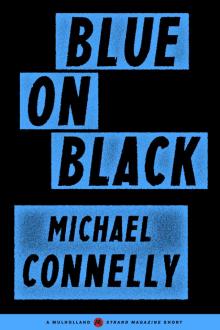 Blue on Black
Blue on Black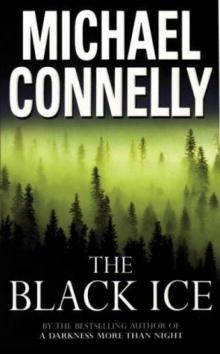 The Black Ice (1993)
The Black Ice (1993) Crime Beat: A Decade of Covering Cops and Killers
Crime Beat: A Decade of Covering Cops and Killers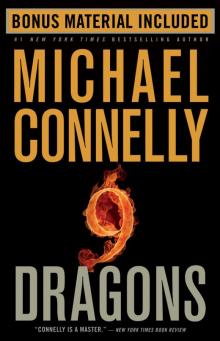 Nine Dragons
Nine Dragons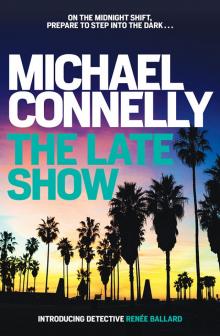 The Late Show
The Late Show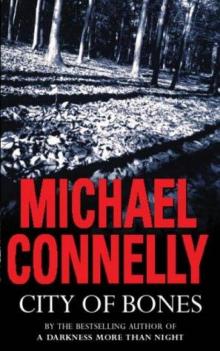 City of Bones
City of Bones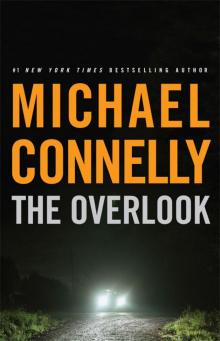 The Overlook
The Overlook The Crossing
The Crossing The Poet (1995)
The Poet (1995)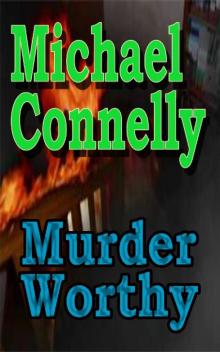 Murder Worthy
Murder Worthy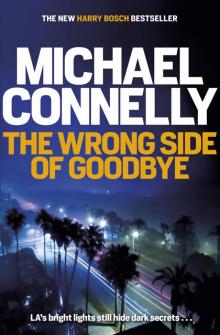 The Wrong Side of Goodbye
The Wrong Side of Goodbye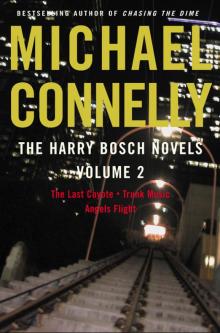 Harry Bosch Novels, The: Volume 2
Harry Bosch Novels, The: Volume 2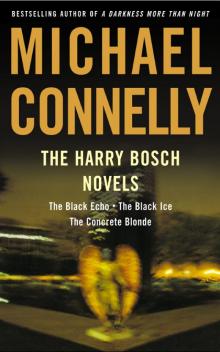 The Harry Bosch Novels
The Harry Bosch Novels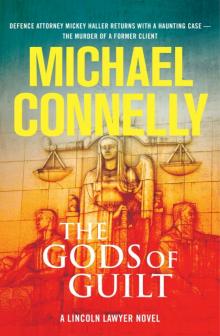 The Gods of Guilt
The Gods of Guilt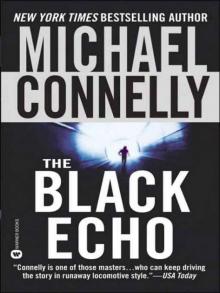 The Black Echo
The Black Echo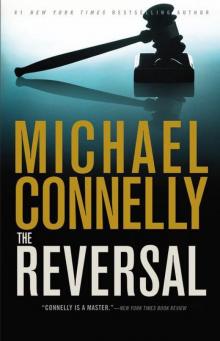 The Reversal
The Reversal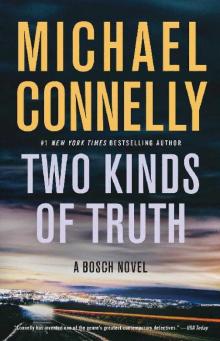 Two Kinds of Truth
Two Kinds of Truth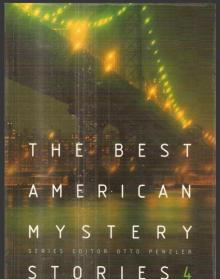 The Best American Mystery Stories 2003
The Best American Mystery Stories 2003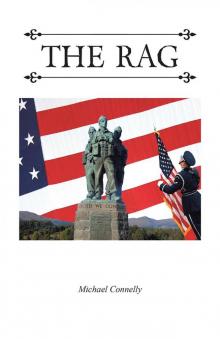 The Rag
The Rag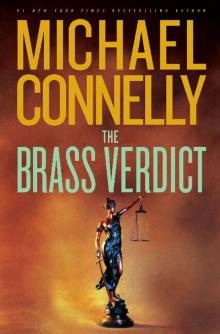 The Brass Verdict
The Brass Verdict The Black Echo (1992)
The Black Echo (1992)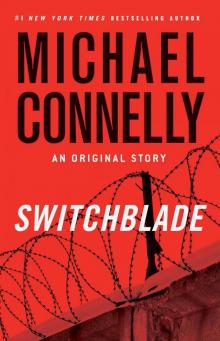 Switchblade
Switchblade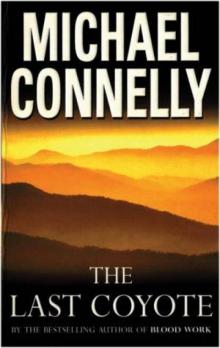 The Last Coyote
The Last Coyote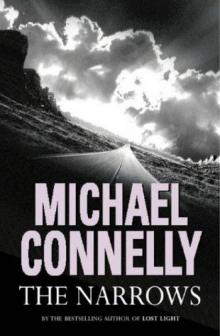 The Narrows
The Narrows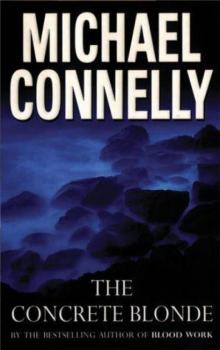 The Concrete Blonde (1994)
The Concrete Blonde (1994)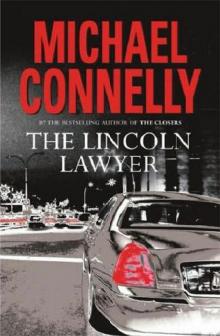 THE LINCOLN LAWYER (2005)
THE LINCOLN LAWYER (2005)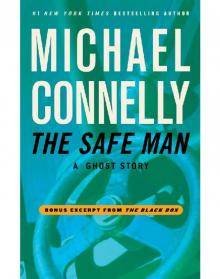 The Safe Man: A Ghost Story
The Safe Man: A Ghost Story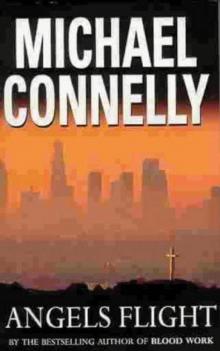 Angels Flight (1998)
Angels Flight (1998) Void Moon
Void Moon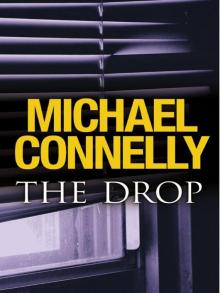 The Drop
The Drop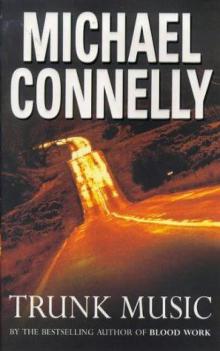 Trunk Music
Trunk Music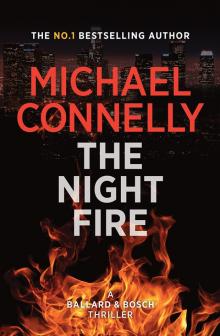 The Night Fire
The Night Fire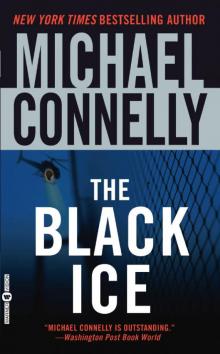 The Black Ice
The Black Ice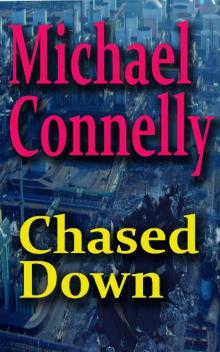 Chased Down
Chased Down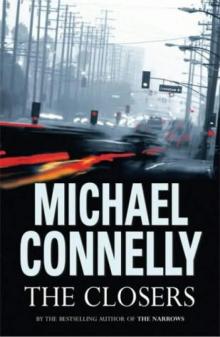 The Closers
The Closers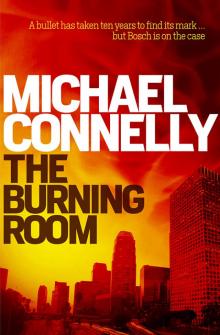 The Burning Room
The Burning Room Angels Flight
Angels Flight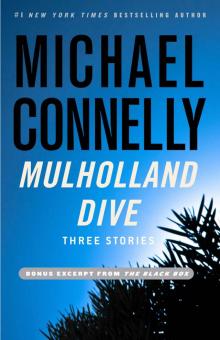 SSC (2012) Mulholland Drive
SSC (2012) Mulholland Drive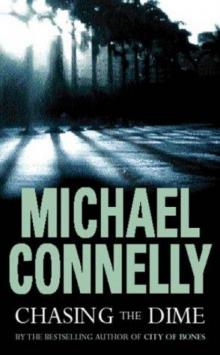 Chasing the Dime
Chasing the Dime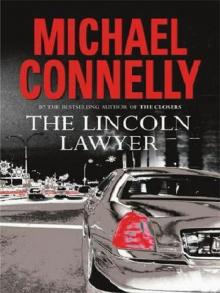 The Lincoln Lawyer
The Lincoln Lawyer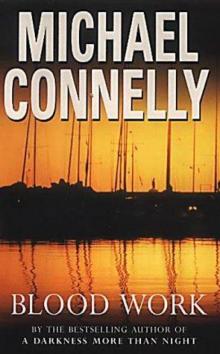 Blood Work (1998)
Blood Work (1998)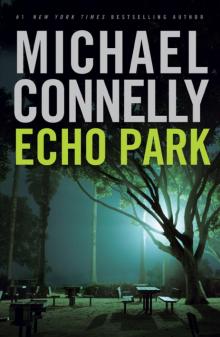 Echo Park
Echo Park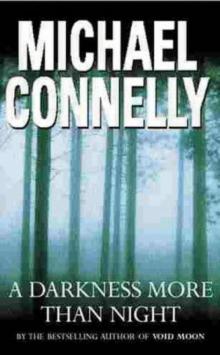 A Darkness More Than Night
A Darkness More Than Night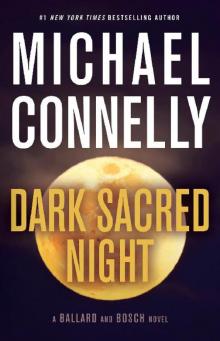 Dark Sacred Night - Ballard and Bosch #1;Renée Ballard #2
Dark Sacred Night - Ballard and Bosch #1;Renée Ballard #2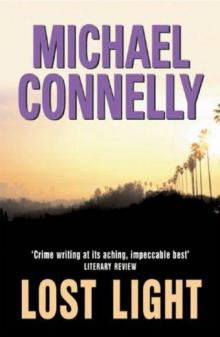 Lost Light
Lost Light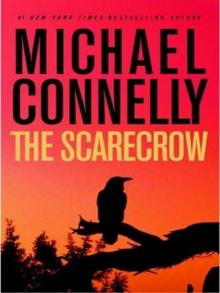 The Scarecrow
The Scarecrow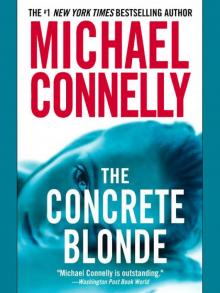 The Concrete Blonde
The Concrete Blonde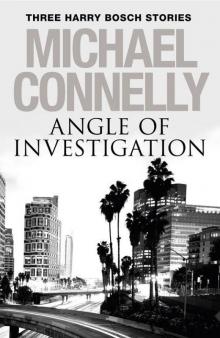 Angle of Investigation
Angle of Investigation Suicide Run: Three Harry Bosch Stories
Suicide Run: Three Harry Bosch Stories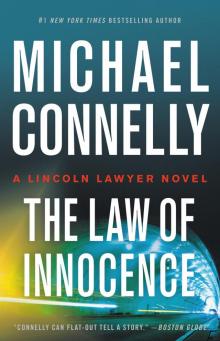 The Law of Innocence
The Law of Innocence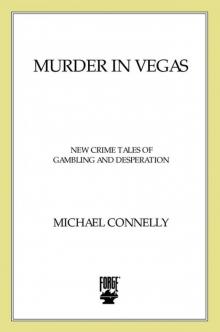 Murder in Vegas: New Crime Tales of Gambling and Desperation
Murder in Vegas: New Crime Tales of Gambling and Desperation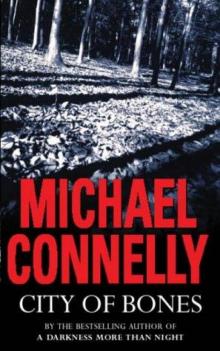 City Of Bones (2002)
City Of Bones (2002)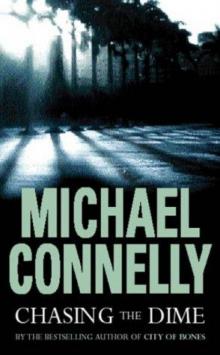 Chasing the Dime (2002)
Chasing the Dime (2002)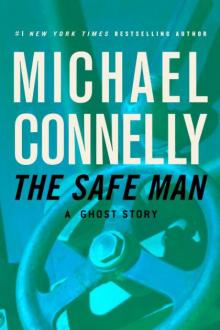 The Safe Man
The Safe Man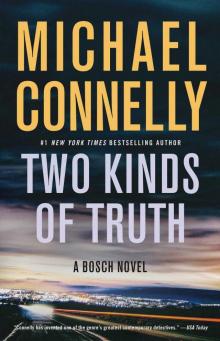 Two Kinds of Truth (A Harry Bosch Novel)
Two Kinds of Truth (A Harry Bosch Novel)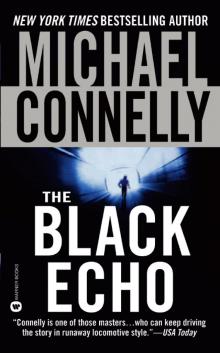 Harry Bosch 01 - The Black Echo
Harry Bosch 01 - The Black Echo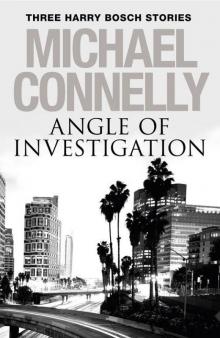 Angle of Investigation: Three Harry Bosch Short Stories
Angle of Investigation: Three Harry Bosch Short Stories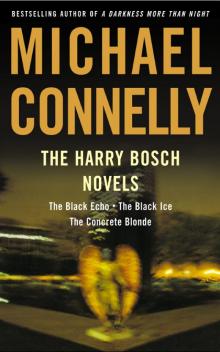 The Harry Bosch Novels Box Set 1
The Harry Bosch Novels Box Set 1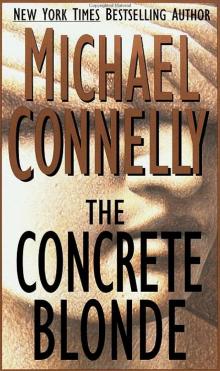 The Concrete Blonde hb-3
The Concrete Blonde hb-3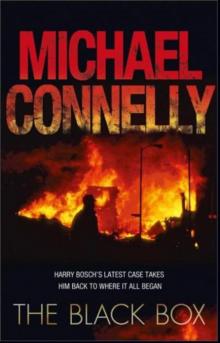 The Black Box hb-18
The Black Box hb-18 Short Stories
Short Stories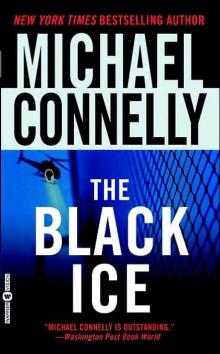 The Black Ice hb-2
The Black Ice hb-2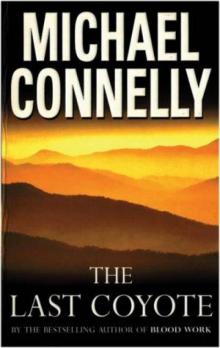 The Last Coyote (1995)
The Last Coyote (1995)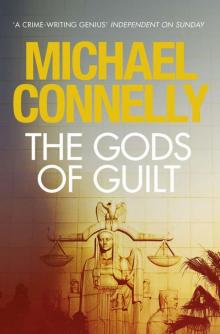 The Gods of Guilt mh-5
The Gods of Guilt mh-5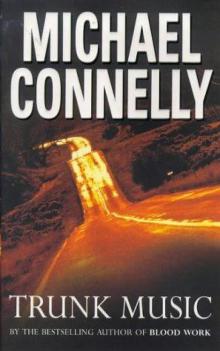 Trunk Music (1996)
Trunk Music (1996)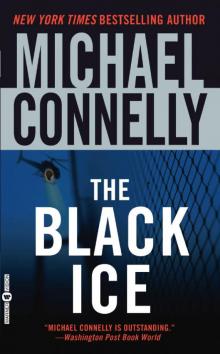 Harry Bosch 02 - The Black Ice
Harry Bosch 02 - The Black Ice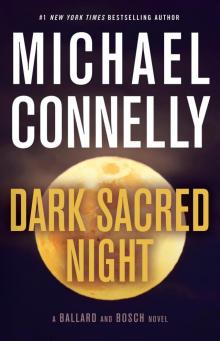 Dark Sacred Night
Dark Sacred Night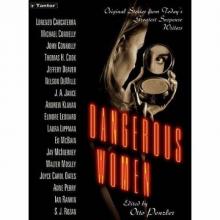 Cielo Azul
Cielo Azul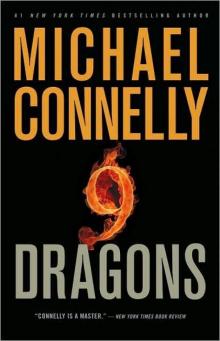 9 Dragons
9 Dragons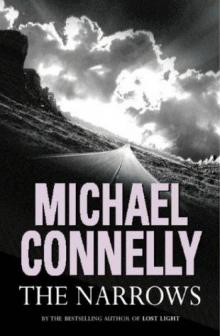 The Narrows (2004)
The Narrows (2004)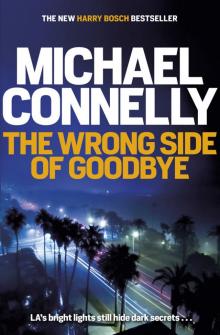 The Wrong Side of Goodbye (Harry Bosch Series)
The Wrong Side of Goodbye (Harry Bosch Series)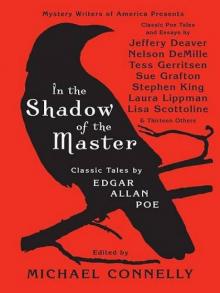 In The Shadow Of The Master: Classic Tales by Edgar Allan Poe
In The Shadow Of The Master: Classic Tales by Edgar Allan Poe Void Moon (1999)
Void Moon (1999)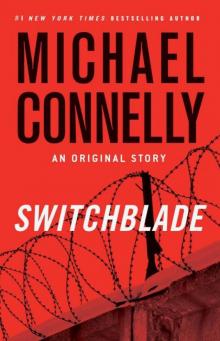 Switchblade: An Original Story (harry bosch)
Switchblade: An Original Story (harry bosch)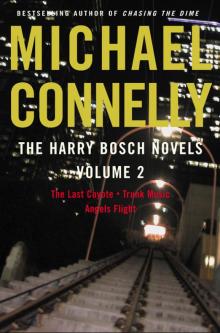 The Harry Bosch Novels, Volume 2
The Harry Bosch Novels, Volume 2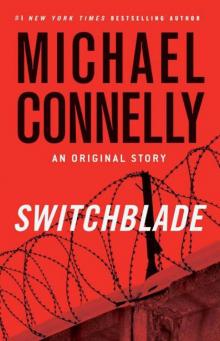 Switchblade: An Original Story
Switchblade: An Original Story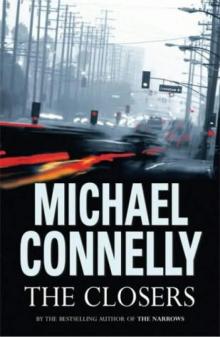 The Closers (2005)
The Closers (2005) Crime Beat
Crime Beat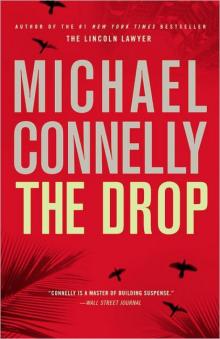 The Drop hb-17
The Drop hb-17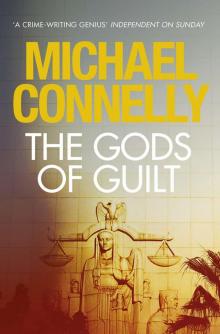 The Gods of Guilt (Mickey Haller 5)
The Gods of Guilt (Mickey Haller 5)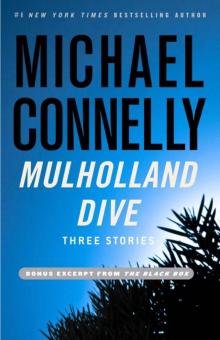 Mulholland Dive: Three Stories
Mulholland Dive: Three Stories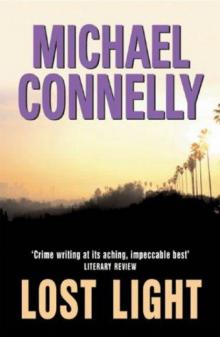 Lost Light (2003)
Lost Light (2003)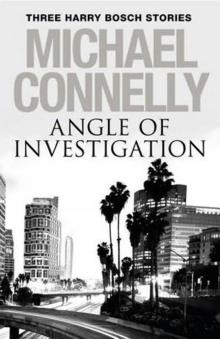 Angle of Investigation: Three Harry Bosch Stories
Angle of Investigation: Three Harry Bosch Stories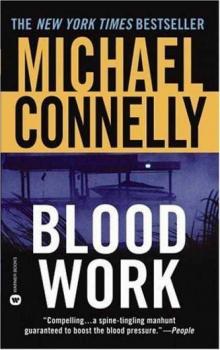 Blood Work
Blood Work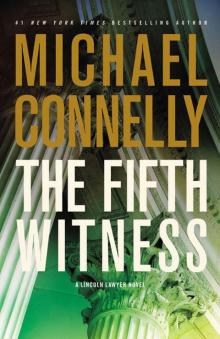 The Fifth Witness: A Novel
The Fifth Witness: A Novel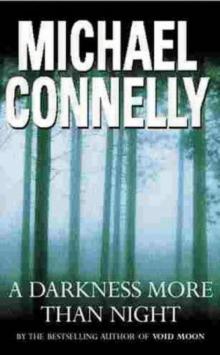 A Darkness More Than Night (2000)
A Darkness More Than Night (2000)